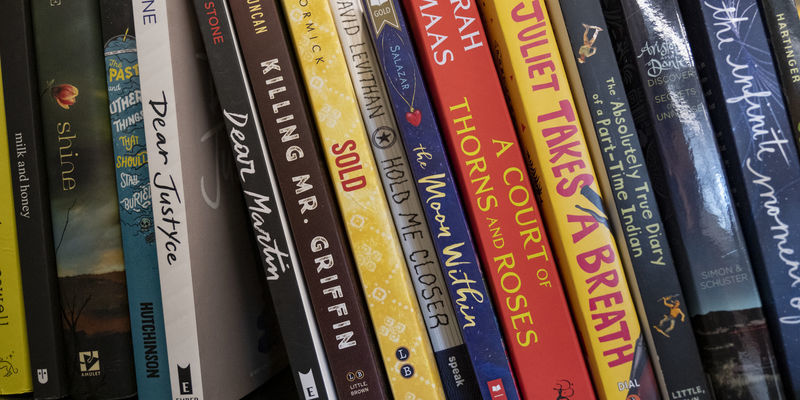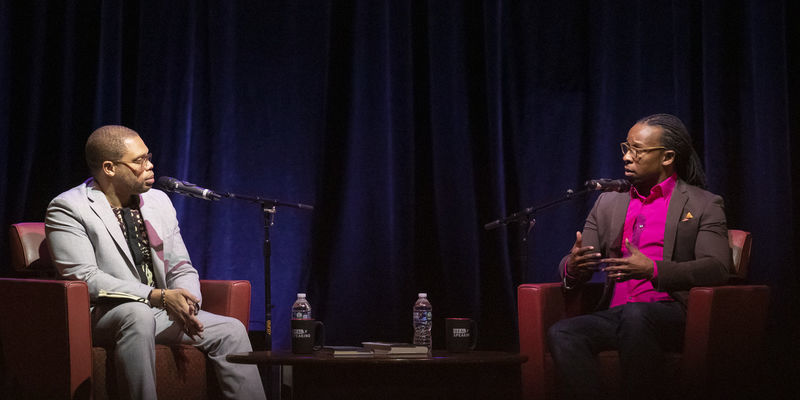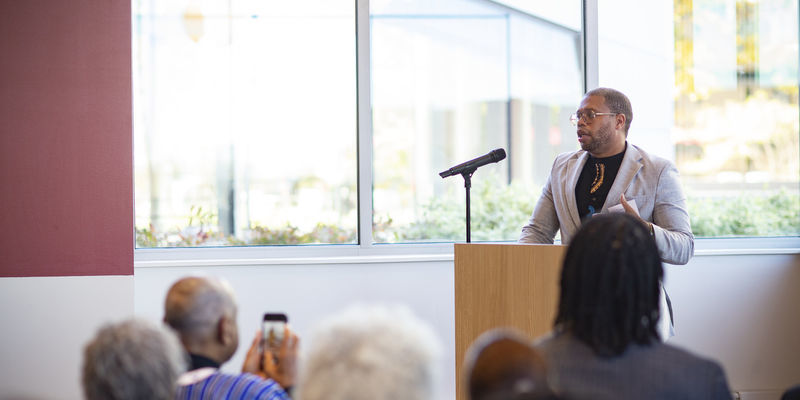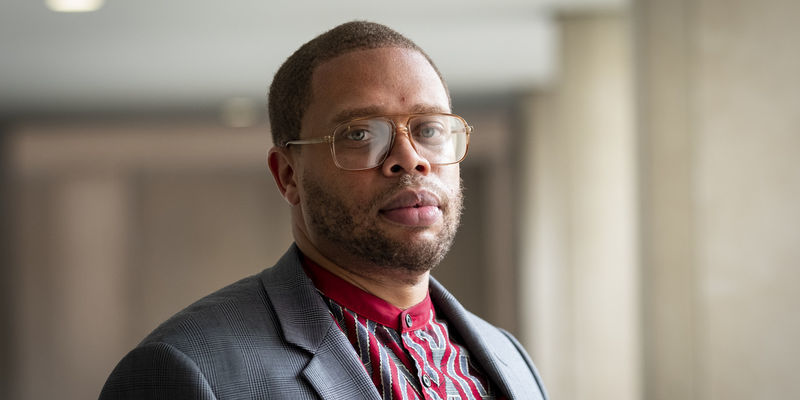Temple Owls lead the fight against banning books by Black authors
Eric Cortes, KLN ’07, senior director of social media at Visit Philadelphia, and Michael Robinson, director of community outreach and hiring for Temple University’s Lenfest Center for Community Workforce Partnerships, are involved in the Little Free(dom) Library initiative.
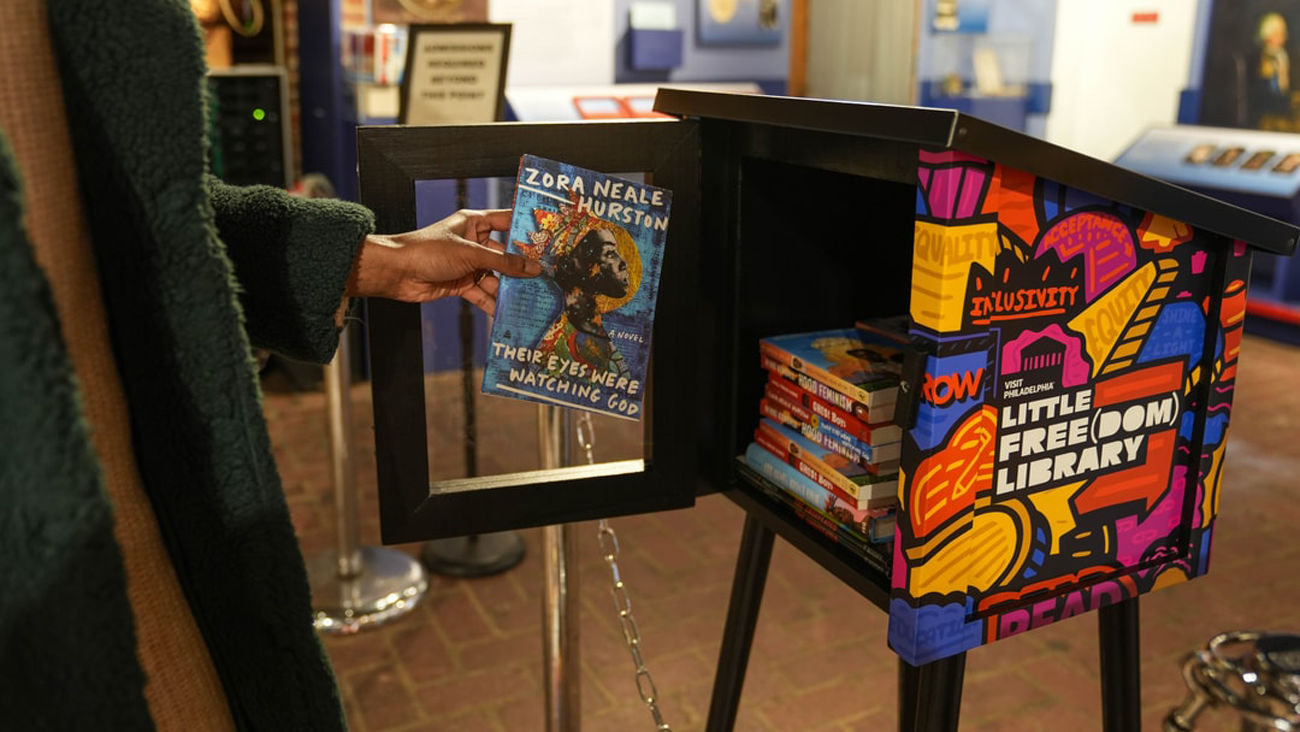
According to the group PEN America, more than 30 states have banned books by Black authors, including classics such as The Color Purple and The Autobiography of Malcolm X. The same group reports that “books about race, racism or that feature characters of color” make up 30% of the titles that are being banned.
Banning a book does not make it illegal to own, but it creates hurdles when it comes to locating that book in neighborhood bookstores and libraries. For Black History Month, the Little Free Library nonprofit, Visit Philadelphia and the Free Library of Philadelphia are working to clear those hurdles.
Together, the three entities have sponsored the Little Free(dom) Library initiative that promotes banned titles by Black authors. At 13 sites across the city of Philadelphia, readers can now access 1,500 free books, which have been banned and are authored by Black writers. A full list of sites where the books are available can be found here.
Eric Cortes, KLN ’07, senior director of social at Visit Philadelphia, said that the initiative’s efforts strive to make books by Black authors accessible to diverse audiences and educate others.
“We want to emphasize that Black history is American history,” said Cortes, who graduated from Temple University’s Klein College of Media and Communication in 2007 with a degree in journalism. “We’re learning from our past and recognizing the complexity of that history. Unfortunately, up to 30 states believe we should not read about experiences like race, sexuality, slavery and police brutality that they deem otherwise inappropriate.”
Visit Philadelphia partnered with Black-owned bookshops, including Hakim’s Bookstore, Uncle Bobby’s Books and Coffee, and Harriet’s Bookshop to create the list of banned books. Cortes helped produce a social video series where authors and educators read aloud excerpts from books by Black authors at the different Little Free(dom) Library locations in Philadelphia.
“Reading and hearing other people’s words that can relate to how others grew up or what they’re living in now can make a difference,” Cortes said. “Because if you don’t know about your past or even your present, how can you move forward in your future?”
A participant in the video series, Michael Robinson, said recent efforts by legislators have restricted and censored the free speech of Black authors and educators. As an example, he cited the recent rejection of The College Board’s new African American History Advanced Placement by Florida Gov. Ron DeSantis’ administration.
“Sharing Black history is an offense to some white people, so they have state laws that censor books that share historical events in America when it was legal for more than 400 years to oppress and abuse African Americans under slavery,” said Robinson, director of community outreach and hiring for Temple University’s Lenfest Center for Community Workforce Partnerships.
“Some officials continue to ban literature by Black authors because of the color of their skin; oppressive gatekeepers feel that Black literary works aren’t on par with mainstream white authors and audiences,” he added. “It was wrong then and it’s wrong now to censor that artistry, so I applaud Visit Philadelphia for creating this initiative. The videos will come across powerfully.”
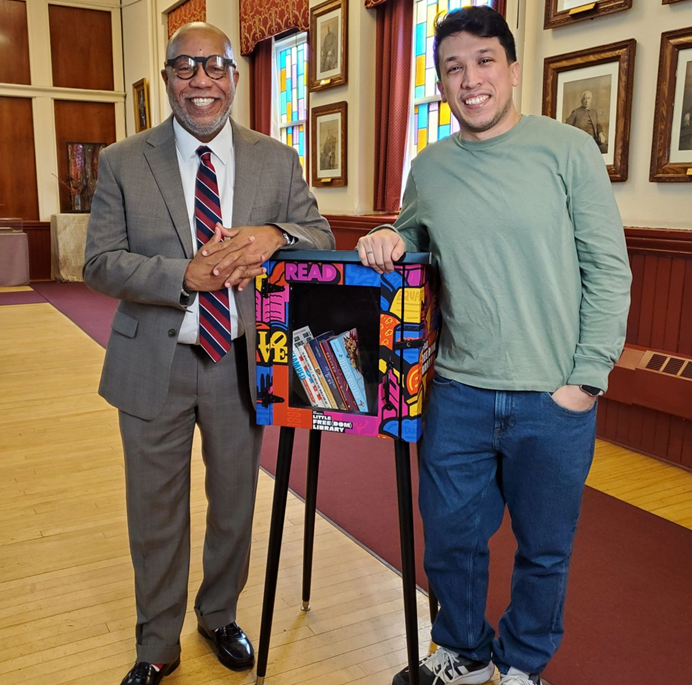 Eric Cortes, KLN ’07, senior director of social media at Visit Philadelphia, leads the nonprofit’s organic paid and influencer strategies. Michael Robinson, director of the community hiring initiative at Temple University, is the producer of the largest annual citywide job fair in Philadelphia and co-producer of the largest annual law enforcement job fair on the East Coast. (Photo courtesy of Michael Robinson)
Eric Cortes, KLN ’07, senior director of social media at Visit Philadelphia, leads the nonprofit’s organic paid and influencer strategies. Michael Robinson, director of the community hiring initiative at Temple University, is the producer of the largest annual citywide job fair in Philadelphia and co-producer of the largest annual law enforcement job fair on the East Coast. (Photo courtesy of Michael Robinson)
Additionally, Robinsons explained the importance of incorporating aspects of Black history in American history into the higher education curriculum across the country. In 1971, Temple University established what eventually would become known as the Department of Africology and African American Studies, one of the first Black studies programs in the country and the first to offer a doctoral program.
He said there are other ways higher education can weave in Black history, which is also American history, since many think these are mutually exclusive.
“In short, you cannot talk about American history without including the conversation about Black achievements because the industrial success of America was built on the backs of Africans and African Americans,” he added. “Whether we talk about banned books by Black authors or inventions like the gas mask, the ironing board, traffic lights and the design of Washington, D.C., they were each an innovation by African Americans that should continue to be celebrated and not ignored.”
The social video series will be available on the Visit Philadelphia's Instagram beginning Feb. 22. Other Temple Owls in the series include alumni Daecia Borgia and Solomon Jones.
